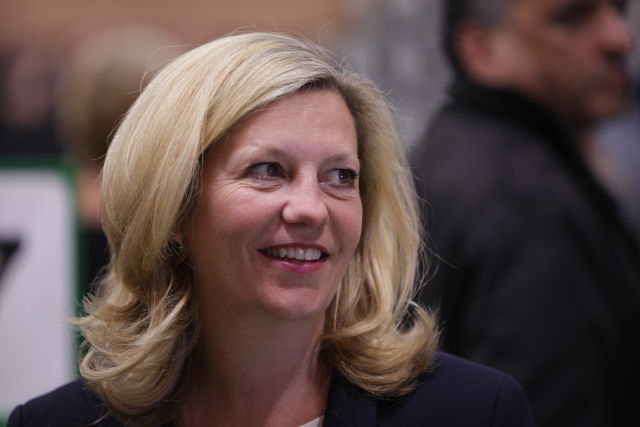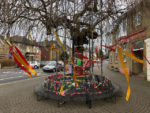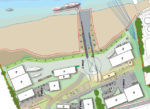The council share this latest news. Ed
Island households will be asked to contribute an extra three per cent in council tax next year to help care for vulnerable adults and the elderly.
The increase will go towards an ambitious transformation programme in adult social care – helping more Islanders to remain at home and receive community-based support.
Mosdell: “A wider range of community based options”
Changes are already underway and have so far helped towards a 15 per cent increase in people supported to live at home.
Cllr Clare Mosdell, Cabinet member for adult social care, said,
“The care of our vulnerable adults and elderly is an absolute priority for the council, and we have been working tirelessly with the NHS and voluntary and community sectors, to create an adult social care model which is flexible and fit for the future.
“We are building a more tailored approach with a wider range of community based options alongside residential and nursing home care. We are also investing in technology and innovation as we plan for the future.
“We must all remember that our Island’s population is ageing rapidly, especially among those over 80 and who can have multiple long term conditions and need our ongoing care and support. And we also have a duty to support family carers – an increasing number of whom are older themselves.”
£3.8 million of cuts
Adult social care is responsible for more than a third of the council’s revenue spending – and as well as the three per cent extra in council tax for 2018/19 it is being asked to find £3.8 million of savings.
Among the proposed savings it is planned that all those who receive top ups to their disability benefit which is not means tested will now have the full amount taken into consideration to provide an equitable approach to the system – something which is already done by a number of other councils, including Hampshire, Southampton and Portsmouth.
Councillor Mosdell said,
“These savings are proposed with a heavy heart, but where there are instances of people struggling due to the budget changes, we have set aside exceptional hardship funds to specifically offer protection and support.”
The savings include:
- £1.6 million from a review of all residential care packages focusing on complex high cost placements.
- £230,000 from a review and revamp of learning disability residential homes to explore greater independent living.
- £650,000 from a review of all community-based care packages delivered through direct payment.
- £778,700 from changes to the non-residential care charging policy – to be supported by the provision of an exceptional hardship fund.
The three per cent adult social care element is part of an expected council tax rise of 5.99 per cent for Island households.
Councillor Mosdell said,
“Our new approach for the Island’s adult social care is called ‘Care Close to Home’. It aims to achieve reductions in the rate of permanent admissions into residential and nursing care across all age groups.
“This is linked with better community-based support, greater investment in early help services delivered by the voluntary and community sector, a growth of reablement services provided free to people for up to six weeks after a major operation or accident – and ‘assistive’ technology in the home.”
Fact file
The extra three per cent in council tax is sanctioned by the government in recognition of the huge financial pressures nationally in adult social care. This is the final year the council can apply this element under the current arrangements.
Later this year the government is publishing a Green Paper to tackle the future funding of care for older people.
At the end of 2016/17 the Island’s permanent admission rate into residential and nursing care was 952 people per 100,000 aged 65 and older – compared to a national average of 611 people per 100,000 – meaning the Island was about one third higher. By the end of November 2017 the projected rate for the Island had fallen to 756 people per 100,000, largely due to the Care Close to Home initiative.
In 2017/18 adult social care represented 38 per cent of the council’s net controllable expenditure of £135 million.
Next year a sum of £122,000 is to be spent on technology to improve efficiencies in ways of delivering adult social care, including a pilot scheme to help care assessments and new software.
Image: © With kind permission of Allan Marsh





